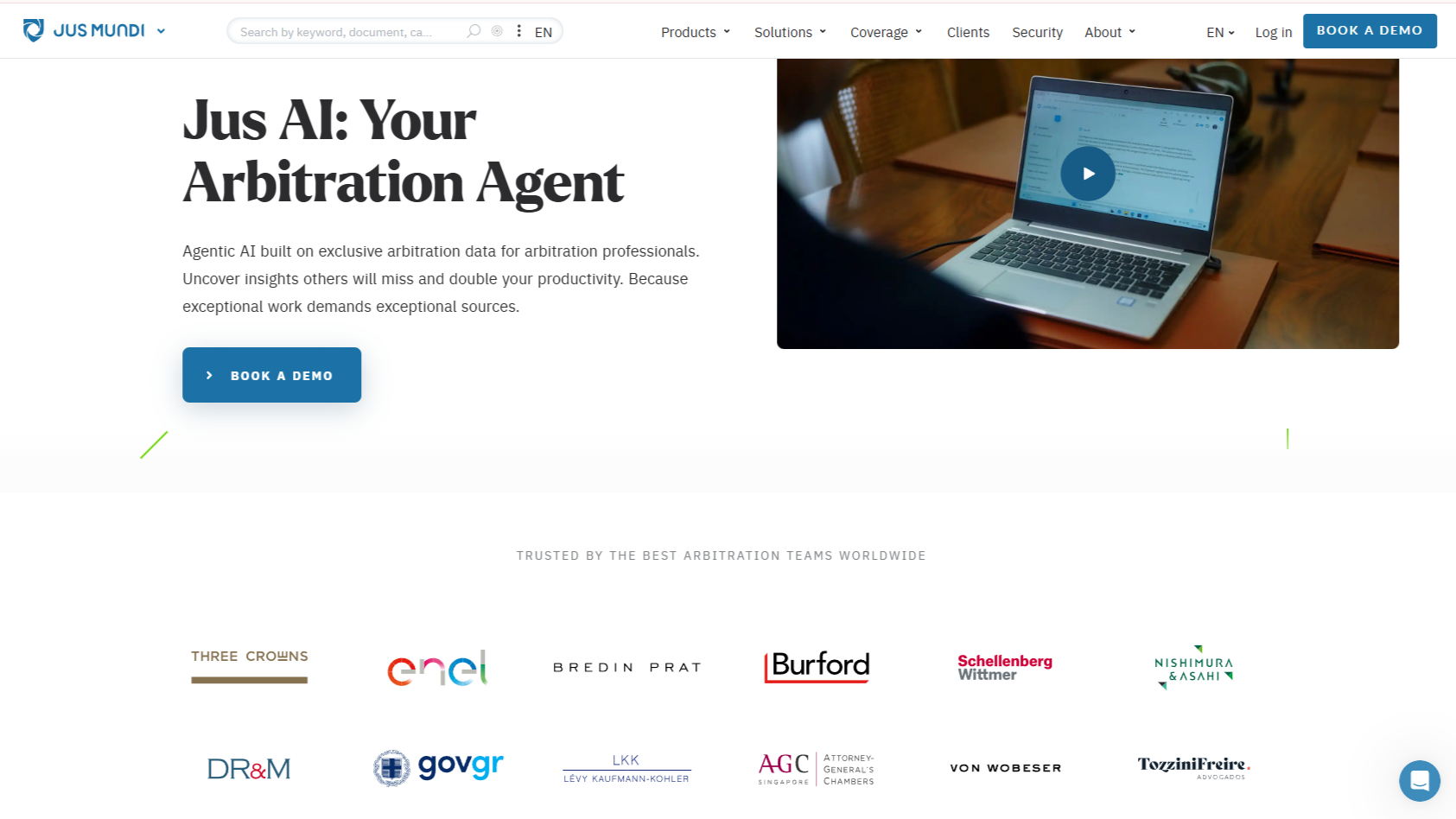Calling it a breakthrough that “sets a new standard for AI-powered legal research quality,” Jus Mundi, the AI-powered research platform for international law and arbitration, today announced the launch of Jus AI 2, the second generation of the AI assistant it launched last year, saying it provides the solution to one of legal AI’s persistent challenges: the trade-off between speed and research quality control.
The Paris-based company claims its second-generation AI assistant eliminates the need for legal professionals to choose between fast AI responses and methodical research oversight — a compromise, it says, that has plagued many legal AI tools since their emergence.
Jus AI 2’s architecture centers on what the company calls an “AI planning agent” that creates multi-step research strategies tailored to specific queries. The system can analyze up to 75,000 documents per minute, drawing from Jus Mundi’s database of awards, treaties, rules and partnerships with major arbitral institutions including the ICC, AAA-ICDR, and HKIAC.
The platform integrates what Jus Mundi terms “Fusion Technology” — combining probabilistic agentic AI reasoning with deterministic search functions. This hybrid approach aims to provide deeper research capabilities while maintaining the precision that legal professionals require.
According to the company, Jus AI 2 achieves a 125% improvement in retrieval relevancy compared to traditional legal research tools.
“The solution’s new AI planning agent creates a multi-step research plan tailored to each query,” the company said in an announcement. “It then analyses up to 75,000 documents per minute, identifying the most relevant legislations, precedents, and publications from all over the world. Finally, it delivers a structured, actionable answer, with transparent reasoning and specific source documents.”
Emphasis On Transparency
Jean-Rémi de Maistre, Jus Mundi’s CEO and co-founder, says that Jus AI 2 addresses the legal profession’s continuing concerns about AI reliability.
“While AI is probabilistic by nature, arbitration professionals need certainty when million-dollar disputes hang on procedural nuances,” he said. “Jus AI 2 eliminates the compromise between speed and control. For the first time, practitioners can leverage agentic AI reasoning while maintaining complete oversight of their research sources.”
The platform emphasizes transparency through detailed documentation of its reasoning steps and clear citations, the company says, making it easy to verify and trust the insights delivered.
Jus Mundi has built broad acceptance within the arbitration community, serving over 650 arbitration teams, including at major firms such as Freshfields, A&O Shearman, White & Case, and Quinn Emanuel.
The company says it has invested heavily in security certifications, operating within ISO 27001 and SOC II frameworks. Its Jus AI 2 carries ISO 42001 certification, an international framework for responsible AI governance.
Beyond Arbitration?
You can see Jus AI 2 in action during a live webinar on Sept. 11, 2025, at 10 a.m. ET, presented by CEO de Maistre and the company’s head of data and AI Ayushman Dash. To join the webinar, register here.
Meanwhile, the company seems to be hinting at ambitions beyond the sphere of international arbitration.
“This breakthrough goes beyond arbitration,” de Maistre said in the announcement. “We’ve proven that Agentic AI-powered legal research can meet the quality standards legal professionals actually need. What started as arbitration intelligence is now the foundation for legal intelligence across every practice area.”
 Robert Ambrogi Blog
Robert Ambrogi Blog